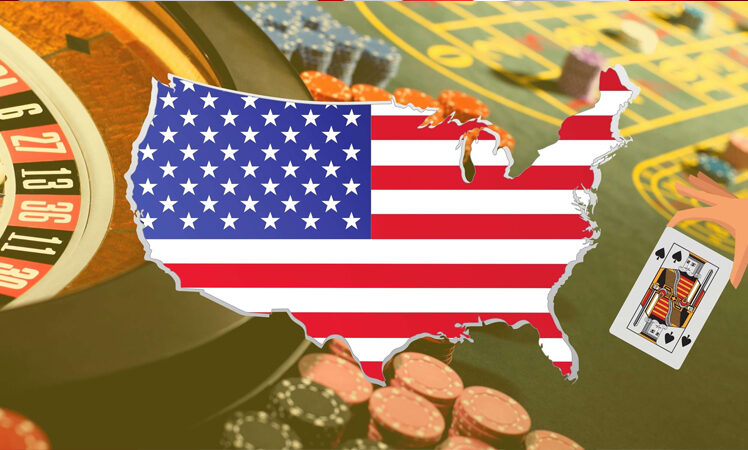- Casino News
- USA News
US iGaming Industry Faces Calls for Stricter Federal Regulation


Regulation Amid Rapid Growth
The United States online gambling market is experiencing a rapid boom, described by Jordan Maynard, chair of the Massachusetts Gaming Commission, as a “highway without speed limits.” As sports betting and iGaming continue to expand nationwide, concerns are growing over the lack of unified federal regulations, especially regarding advertising and consumer protections.
Since the 2018 Supreme Court ruling that legalized sports betting beyond Nevada, the industry has surged, with 37 states now permitting legal sports betting. This swift growth has been accompanied by significant lobbying efforts from gambling operators to resist tighter federal restrictions. Maynard warns that current regulatory frameworks remain fragmented, as most policies and exclusion lists are state-specific, allowing gamblers to easily circumvent safeguards by crossing state lines.
| Aspect | Details |
|---|---|
| Industry Status | Rapid growth; legal in 37 states; described as a “highway without speed limits” |
| Regulatory Challenge | Fragmented state laws; calls for federal rules on advertising and exclusion lists |
| Operator Position | Lobbying against stricter regulations; resist federal oversight |
| Consumer Protection | Focus on responsible gambling, problem gambler exclusions, and underage betting |
| Technology Role | AI can promote healthy betting if regulated properly |
| Illegal Market | Still large; legal market urged not to imitate illegal practices |
| Regulator’s View | Need for “speed limits” and “seat belts” to protect users and maintain integrity |
Maynard advocates for a nationwide conversation about establishing consistent rules, particularly around betting advertisements and robust exclusion lists for individuals vulnerable to gambling harm. He compares the current landscape to cars on a highway without seatbelt warnings, emphasizing that regulators are crucial in setting standards to protect consumers and maintain market integrity.
The tension between regulators and operators is palpable. While operators argue that they already face heavy oversight, Maynard stresses the importance of transparency and accountability. He highlights the role of emerging technologies, including artificial intelligence, which, if properly regulated, could help promote responsible gambling behaviors rather than just target bettors to increase profits.
One major challenge remains the illegal gambling market, which continues to thrive despite the growth of legal platforms. Industry voices often use the illegal market as a deterrent against regulation, warning that excessive restrictions could drive customers away from regulated sites. Maynard rejects this argument, stating that the legal market should not race to adopt the lax practices of illegal operators. Instead, he calls for “reasonable, rational friction” — such as security measures in casinos — that prioritizes safety and fairness.
Concerns also extend to underage gambling, with illegal betting among minors on the rise despite age restrictions. Maynard suggests that cooperation between operators, athletes, and sports leagues could be pivotal in addressing this problem through education and targeted advertising campaigns.
Despite his efforts, Maynard acknowledges the uphill battle regulators face in gaining respect and enforcing meaningful controls in a fast-moving industry. The challenge lies in balancing economic benefits — including tax revenue — with protecting citizens from gambling-related harm.
As the US iGaming industry accelerates its growth, calls for establishing clear federal “speed limits” and “seat belts” reflect a broader debate: how to foster a thriving gambling market that is also safe, transparent, and responsible. With regulators like Maynard pushing for stronger oversight, the future of US online gambling may depend on finding that critical balance.
Analysis: Navigating Growth and Regulation in US iGaming
The US iGaming sector is at a crossroads. The post-2018 legalization surge has unleashed unprecedented market expansion and revenue generation, but also significant regulatory challenges. States have led the charge individually, creating a patchwork of rules that can be inconsistent and easily bypassed, undermining consumer protections.
Jordan Maynard’s call for federal standards is timely. Nationwide advertising rules could curb aggressive marketing practices, particularly those targeting vulnerable populations or minors. Unified exclusion lists would close loopholes exploited by problem gamblers moving between states. Without a federal framework, individual state efforts risk being undercut.
Operators’ resistance to regulation is unsurprising given their commercial interests, but Maynard’s perspective highlights an important distinction: regulators prioritize public welfare, not industry profits. The analogy of “cars without seatbelt dingers” captures the tension between unregulated growth and the need for safeguards.
AI and technology offer promising tools for improving responsible gambling initiatives if harnessed properly under regulatory guidance. Yet, this requires regulators to be proactive and engaged rather than reactive.
The ongoing threat of illegal betting remains a complex issue. While operators warn against regulation potentially driving customers underground, Maynard’s stance that the illegal market should be marginalized rather than used as a shield for lax regulation is crucial. Legal markets must differentiate themselves through safety and integrity.
The industry right now is a highway without speed limits — regulators need to step in to set the rules, protect consumers, and ensure the legal market doesn’t race to be the illegal market
Conclusion
Finally, the social impact — from underage gambling to addiction — underscores why regulation cannot lag behind market growth. Collaborative approaches involving operators, sports leagues, and communities may yield better outcomes than isolated efforts.
In sum, the US iGaming industry’s rapid growth brings economic promise but also significant social responsibility. The path forward likely requires federal coordination, smarter use of technology, and a regulator-industry partnership that prioritizes balanced, enforceable standards. Without these measures, the “highway without speed limits” may lead to more crashes than victories.








